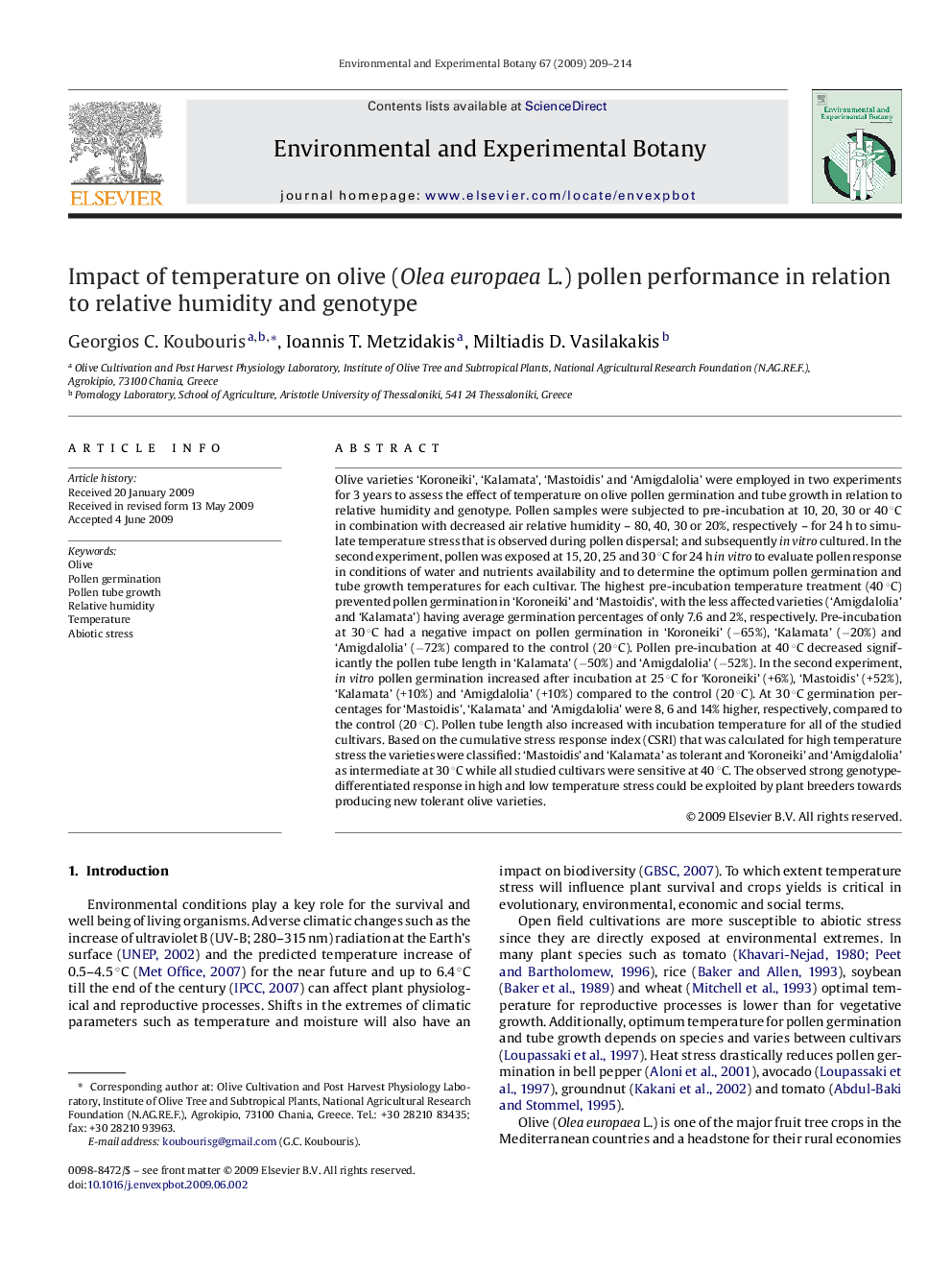| Article ID | Journal | Published Year | Pages | File Type |
|---|---|---|---|---|
| 4555053 | Environmental and Experimental Botany | 2009 | 6 Pages |
Olive varieties ‘Koroneiki’, ‘Kalamata’, ‘Mastoidis’ and ‘Amigdalolia’ were employed in two experiments for 3 years to assess the effect of temperature on olive pollen germination and tube growth in relation to relative humidity and genotype. Pollen samples were subjected to pre-incubation at 10, 20, 30 or 40 °C in combination with decreased air relative humidity – 80, 40, 30 or 20%, respectively – for 24 h to simulate temperature stress that is observed during pollen dispersal; and subsequently in vitro cultured. In the second experiment, pollen was exposed at 15, 20, 25 and 30 °C for 24 h in vitro to evaluate pollen response in conditions of water and nutrients availability and to determine the optimum pollen germination and tube growth temperatures for each cultivar. The highest pre-incubation temperature treatment (40 °C) prevented pollen germination in ‘Koroneiki’ and ‘Mastoidis’, with the less affected varieties (‘Amigdalolia’ and ‘Kalamata’) having average germination percentages of only 7.6 and 2%, respectively. Pre-incubation at 30 °C had a negative impact on pollen germination in ‘Koroneiki’ (−65%), ‘Kalamata’ (−20%) and ‘Amigdalolia’ (−72%) compared to the control (20 °C). Pollen pre-incubation at 40 °C decreased significantly the pollen tube length in ‘Kalamata’ (−50%) and ‘Amigdalolia’ (−52%). In the second experiment, in vitro pollen germination increased after incubation at 25 °C for ‘Koroneiki’ (+6%), ‘Mastoidis’ (+52%), ‘Kalamata’ (+10%) and ‘Amigdalolia’ (+10%) compared to the control (20 °C). At 30 °C germination percentages for ‘Mastoidis’, ‘Kalamata’ and ‘Amigdalolia’ were 8, 6 and 14% higher, respectively, compared to the control (20 °C). Pollen tube length also increased with incubation temperature for all of the studied cultivars. Based on the cumulative stress response index (CSRI) that was calculated for high temperature stress the varieties were classified: ‘Mastoidis’ and ‘Kalamata’ as tolerant and ‘Koroneiki’ and ‘Amigdalolia’ as intermediate at 30 °C while all studied cultivars were sensitive at 40 °C. The observed strong genotype-differentiated response in high and low temperature stress could be exploited by plant breeders towards producing new tolerant olive varieties.
